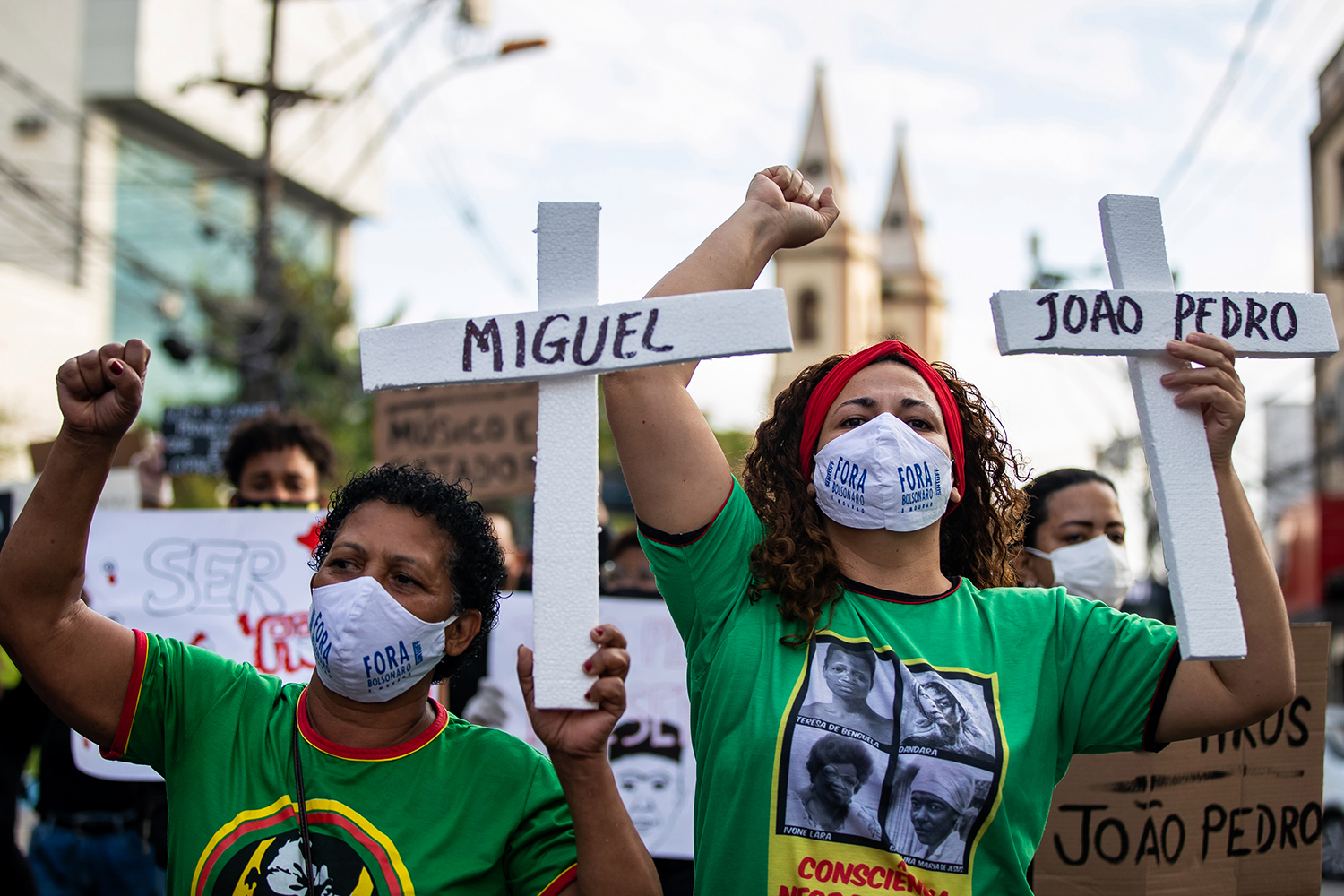RIO DE JANEIRO, BRAZIL – Over half of Brazilians (52.7%) consider that the murder of João Alberto Silveira Freitas, who was beaten to death by security guards of a Carrefour store in Porto Alegre on Thursday evening, November 19th, was driven by racism. This is shown in a survey by Atlas Político, which interviewed 1,764 people over the past two days.
“We decided to conduct this survey due to the immediate media and social network repercussions on the case. The video footage, with very graphic and shocking images, has rendered this crime symbolic,” explains Andrei Roman, political scientist and CEO of the analysis company.

The murder of the 40-year-old man in the presence of at least 15 witnesses who did nothing to defend him on the eve of Black Awareness Day shows that the overwhelming majority of Brazilians -90%, according to the survey – believe that there is, indeed, racism in the country (5.7% say it doesn’t exist and 3.6% did not know how to reply), a different position from that adopted by the government of President Bolsonaro.
However, the survey also points to the existence of a deep ideological divide in perceptions about the racial issue in Brazil. According to Atlas Político, it is those respondents who voted for Jair Bolsonaro in the 2018 elections who most deny the presence of racism in the death of João Alberto. Some 44% consider that this was not the motivation for the crime. Among Fernando Haddad’s (PT – Workers’ Party) voters, 84% believe that racial discrimination was the pivotal factor in the murder.
Some 12% of Bolsonarist voters also believe there is no racism in the country, while only 0.3% of Haddad’s voters agree. Still, an “overwhelming majority” of those who voted for the President recognize the existence of this prejudice in Brazil: 84%.
This ideological divide is most evident when it comes to the racial quota policy in public universities. In total, 46% of Brazilians are in favor of quotas (39.7% are against and 14% do not know), but 77% of Bolsonaro’s supporters are against it, while 84% of Haddad’s voters support this policy.
“Quotas are, perhaps, the topic that most marks the deep divide in Brazilian society when it comes to the politicization of racial issues,” says Roman.
On Saturday, when antiracist protests took to the streets of several Brazilian cities to demand justice for João Alberto, the President used Twitter to say that Brazil’s problems “are much more complex and extend beyond racial issues.” “There is no point in dividing the suffering of the Brazilian people into groups. Problems like violence are experienced by everyone, in every way, be it a father or a mother who loses their child, be it a case of domestic violence, or a resident of an area controlled by organized crime,” he wrote. “As a man and as President, I am color-blind: everyone is the same color. There is no better skin color than another. There are good men and bad men,” added Bolsonaro.
In his speech at the G20 meeting, and making no mention of João Alberto, the President stated that there are “attempts to import into our territory tensions that are foreign to our history.” According to Bolsonaro, “the struggle for equality” or “social justice” are only attempts to destroy the affection won by the miscegenation of whites, blacks and indigenous people in Brazil, replacing it with conflict, resentment, hatred and division among races. “All in pursuit of power,” according to the presidential logic, which is echoed in the words of Vice-president Hamilton Mourão.
Mourão described João Alberto’s death as “regrettable,” but denied that Brazil is a racist country, although the victim is black and the perpetrators are white. “I say to you in complete peace of mind: there is no racism. I say this to you because I lived in the United States. Racism is there. (…) Here there is inequality,” he said.
Police Violence
A report by the Network of Safety Observatories, a set of studies on violence in the states of São Paulo, Rio de Janeiro, Bahia, Ceará and Pernambuco, in July showed that blacks represent 75% of people killed by police forces. In the Atlas Político survey, 65.5% believe that the police unfairly discriminate against blacks (25.6% think they don’t and 8.8% don’t know how to reply).
In recent days, comparisons between the murder of João Alberto in Carrefour and George Floyd’s in the United States have emerged on social networks and in antiracist protests in several cities. In late May, Floyd, a black man, unarmed, was asphyxiated by a white police officer in Minneapolis at the time he was being held on suspicion of fraud. The scene was recorded and viralized worldwide, triggering outrage and a wave of protests not only in the U.S., but also in Brazil.
Here, after the release of João Alberto’s beating footage, a new video was attached to the investigation of the case: in it, the 40-year-old man is shown punching the Carrefour security guard Giovane Gaspar da Silva, before being beaten to death.
“The disclosure of this footage makes it difficult to draw a direct parallel with Floyd’s case, because a counter-narrative has already emerged that the victim began the attacks, although, of course, nothing justifies his murder,” comments political scientist Andrei Roman.
In the survey conducted by Atlas Político, 43.4% of citizens believe that there is more racism in the United States, while 16% think that racial discrimination is greater in Brazil, and 32% consider that it is similar in both countries. Some 8% did not know how to reply.
In line with the President, 60% of Bolsonaro’s voters believe that the problem is greater in the U.S., while the majority of those who voted for Haddad (53%) believe that racism is similar in the two countries.
Source: El País

